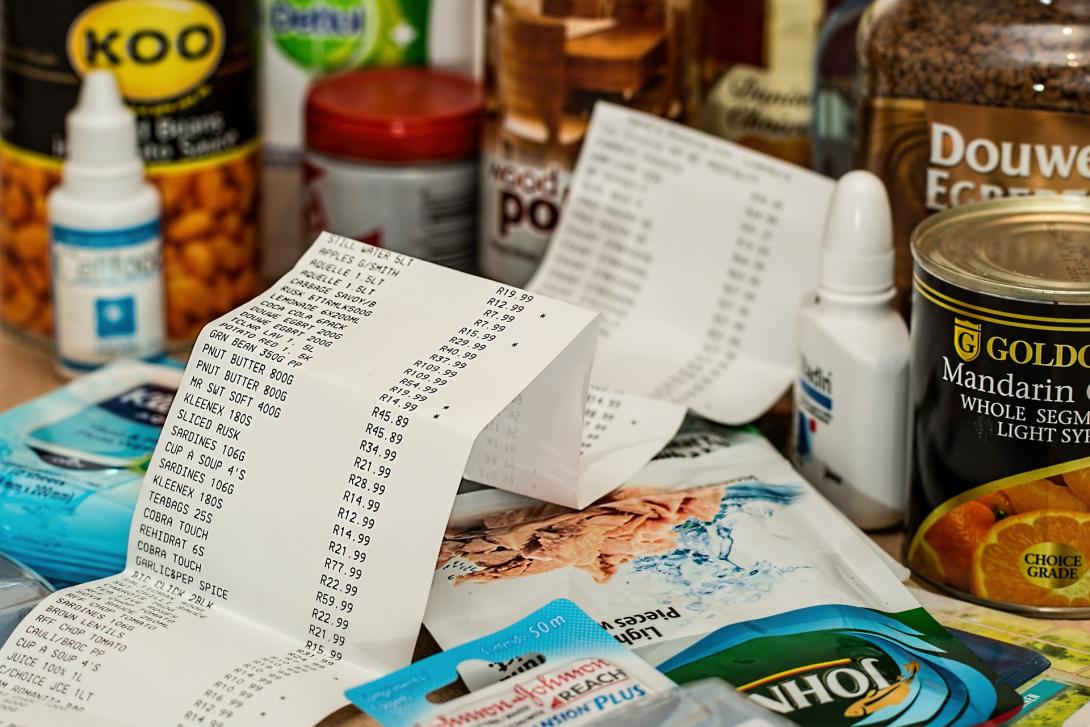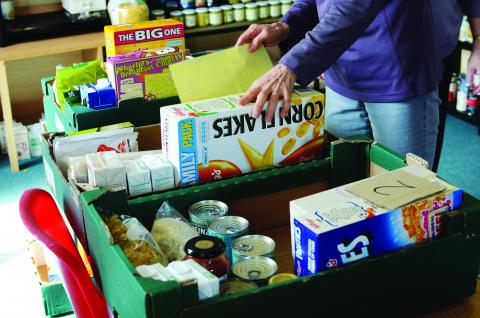02 September 2024
Food Prices Tracker: August 2024

By Katina-Leigh Taylor
Current Food Inflation
Latest data from the Office of National Statistics finds that overall inflation has increased marginally to 2.2% (CPI) in the 12 months to July 2024. Food inflation has remained stable at 1.5% (CPIH). Overall inflation reached a peak of 11.1% in October 2022, marking the highest level in 40 years. Inflation for food and non-alcoholic beverages was even more pronounced, peaking at 19.2%. In contrast, overall inflation peaked at only 9.1% in the United States, 8.7% in Germany, and 6.9% in France. At present, the UK holds the highest core inflation rate among the G7 countries, as well as the highest food inflation).
New data from Kantar, an alternative measure of food inflation, has shown that supermarket prices are 1.8% higher than a year ago in the four weeks up to 4th August, up slightly from 1.6% in July, showing similar findings to the ONS measure of inflation.
Predictions for food inflation in future
A study by BravoVoucher predicts that the cost of everyday food items is set to surge by 2030, with staple products like olive oil expected to reach between £9.05 and £17 per bottle. Olive oil has already experienced the largest price increase , soaring by 113.8% between 2019 and 2024. Baked beans have also seen a significant rise, with prices climbing by 70.5% during the same period, potentially costing around £1.77 per tin by 2030.
Vegetables are also of concern. For example, broccoli which is currently averaging £2.50 per kg, could rise to £3.32 per kg by 2030 if inflation rates remain steady, or £2.82 if economic conditions improve according to the study.
Other common household items, such as semi-skimmed milk, whole chicken, and powdered baby formula, are also expected to see significant price increases by 2030.
The health and food insecurity implications of food inflation
Although overall inflation has slowed, rising food prices continue to impact health and exacerbate food insecurity. One in three parents reports that their children are eating less fruit than they were last year, with 34% of parents buying less fruit overall
Our latest data on food insecurity reveals that 4.8% of households have gone without food for an entire day because they could not afford or access it. Households with children are particularly affected, with 18.0% experiencing food insecurity, compared to 11.7% of households without children.
Research indicates that environments where healthy foods are less accessible, more expensive, and of lower quality contribute to higher rates of diet-related diseases, such as type 2 diabetes. The ongoing rise in food prices is likely to worsen food insecurity by limiting access to healthy and nutritious options. As nutritious foods become increasingly unaffordable, low-income households will face greater barriers, leading to widening disparities in dietary quality.
How has climate change had an impact on food price inflation?
We must also consider the global impact of climate change on food price inflation. Rising temperatures and reduced rainfall have made cultivating crops like olives increasingly challenging, contributing to the sharp rise in olive oil prices over the past five years. Other staple crops, such as rice, soybeans, corn, and potatoes, are also at risk of declining yields due to higher temperatures, which generally lead to lower production.
Overall, climate change has significantly increased the cost of food commodities, with wheat prices up by 17%, palm oil by 23%, sugar by 9%, and pork by 21%. The impact of these high commodity prices is likely to persist, resulting in continued food price increases for consumers in the coming years. Globally, annual food inflation rates could rise by up to 3.2% per year over the next decade due to higher temperatures
In conclusion, the relentlessly high food prices, driven by factors such as climate change, energy costs, and global inflation, is having a profound impact on households across the UK. As staples like olive oil, and other essential items see significant price increases, the burden on citizens—especially low-income families—is growing heavier. This inflation not only threatens food security but also deepens health disparities by making nutritious food increasingly unaffordable. With food inflation showing no signs of abating, it is crucial to address these challenges to ensure equitable access to healthy food for all.

Katina joined The Food Foundation in January 2024 as a Campaigns and Research Administrator, and brings a wealth of knowledge to her role with an MA in Sociology and Social Policy and a BA in Sociology. Her research expertise spans critical areas, including exploring the social determinants of health concerning food poverty, analysing the delegitimisation and polarisation of Black Lives Matter in media discourse, and studying international policymaking regarding abortion legislation. With a passion for understanding societal dynamics, Katina is committed to leveraging her academic background to inform and shape impactful campaigns and research initiatives.

Shona joined The Food Foundation as a Project Officer in 2019 and has worked on research, policy and advocacy across a range of projects over that time including leading our food insecurity surveys and flagship annual Broken Plate reports. She now works across the charity's policy portfolio including our children's food campaigns, food insecurity and food environments. She is a Registered Associate Nutritionist with a background in clinical nutrition who worked in dietetic departments in NHS hospitals before joining The Food Foundation.





